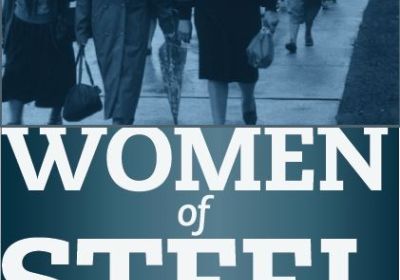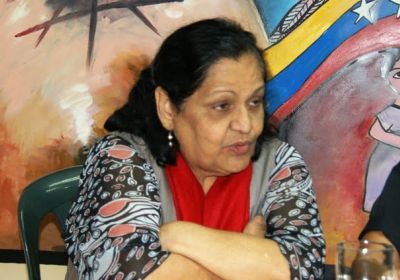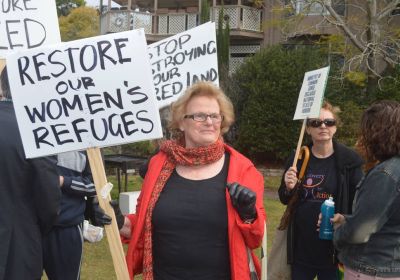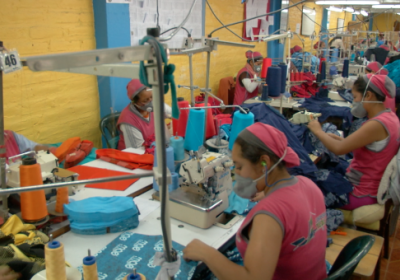
-
 ADELAIDE Watch a film with us: Class Dismissed: How TV Frames the Working Class on Saturday June 20 at 6.30pm. The film examines whether TV portrayals of the working class are accurate, and how they affect the ways viewers think and behave. Salvation Army Worship and Community Centre, 70 Marion St, Unley. Ph Matthew Buckley 0406 822 894. BRISBANE March at a rally to welcome refugees on Saturday June 20 at 11am. King George Square. Ph Paul 3392 3843. Email. CAIRNS
ADELAIDE Watch a film with us: Class Dismissed: How TV Frames the Working Class on Saturday June 20 at 6.30pm. The film examines whether TV portrayals of the working class are accurate, and how they affect the ways viewers think and behave. Salvation Army Worship and Community Centre, 70 Marion St, Unley. Ph Matthew Buckley 0406 822 894. BRISBANE March at a rally to welcome refugees on Saturday June 20 at 11am. King George Square. Ph Paul 3392 3843. Email. CAIRNS -

It was clear early on that something special was happening in the May 24 local government and regional elections across the Spanish state. In Spanish elections, the voter participation rate gets announced at 1pm and 6pm — while voting is still taking place. Well before the polling stations closed, the news was that participation was up about 5% in Catalonia and about 8% in the working-class districts of Barcelona.
-
 Condolences and tributes to legendary revolutionary and champion of women’s rights Nora Castaneda have been pouring in from across Venezuela after news of the activist’s death on May 16. An economist, university lecturer and much-loved revolutionary, Castaneda is renowned for having founded and presided over Venezuela’s internationally celebrated Women’s Development Bank, “Banmujer” since 2001. She was also one of the chief protagonists of Venezuela's working-class women’s movement that emerged in the 1980s.
Condolences and tributes to legendary revolutionary and champion of women’s rights Nora Castaneda have been pouring in from across Venezuela after news of the activist’s death on May 16. An economist, university lecturer and much-loved revolutionary, Castaneda is renowned for having founded and presided over Venezuela’s internationally celebrated Women’s Development Bank, “Banmujer” since 2001. She was also one of the chief protagonists of Venezuela's working-class women’s movement that emerged in the 1980s. -
 In January this year, the Prime Minister Tony Abbott drew attention to the “unfolding tragedy” of violence against women and vowed to put the issue of what he misleadingly calls “domestic violence” on the national agenda.
In January this year, the Prime Minister Tony Abbott drew attention to the “unfolding tragedy” of violence against women and vowed to put the issue of what he misleadingly calls “domestic violence” on the national agenda. -
 Who the hell cares how old Rebel Wilson is?
In recent days, online media began running strange stories — the exact relevance of which was unclear to anything but these site's Google analytics — claiming that Australian comic and actor Rebel Wilson was really in her mid-30s, not 29 as officially claimed.
Who the hell cares how old Rebel Wilson is?
In recent days, online media began running strange stories — the exact relevance of which was unclear to anything but these site's Google analytics — claiming that Australian comic and actor Rebel Wilson was really in her mid-30s, not 29 as officially claimed.
-
 DC Entertainment, Warner Bros Animation, Warner Bros Consumer Products and Mattel - forming a veritable Hollywood marketing Axis of Evil - issued a joint press release on April 22 saying they were releasing a tsunami of marketing targeted at six-to-12 year-old girls. The product they will be pushing will be “DC Superhero Girls” - including Wonder Woman, Supergirl, Batgirl and more - during their formative years.
DC Entertainment, Warner Bros Animation, Warner Bros Consumer Products and Mattel - forming a veritable Hollywood marketing Axis of Evil - issued a joint press release on April 22 saying they were releasing a tsunami of marketing targeted at six-to-12 year-old girls. The product they will be pushing will be “DC Superhero Girls” - including Wonder Woman, Supergirl, Batgirl and more - during their formative years. -
 President Nicolas Maduro at International Workers' Day celebrations in Caracas, May 1.
Braving the heat, more than 100,000 Venezuelans flooded the streets of Caracas on May 1 to commemorate the International Workers' Day and gains for working people under the Bolivarian Revolution.
President Nicolas Maduro at International Workers' Day celebrations in Caracas, May 1.
Braving the heat, more than 100,000 Venezuelans flooded the streets of Caracas on May 1 to commemorate the International Workers' Day and gains for working people under the Bolivarian Revolution.
-
 War planes from the US and its allies bombed the village of Birmehli in northern Syria on the night of April 30. US Central Command spokesperson Major Curtis Kellogg claimed that at least 50 fighters from the self-styled Islamic State (IS) group were killed and there was “no indication that any civilians were killed”. However, human rights groups, including the Britain-based Syrian Observatory for Human Rights (SOHR), have reported that all the casualties were civilians: 64 people, including 31 children.
War planes from the US and its allies bombed the village of Birmehli in northern Syria on the night of April 30. US Central Command spokesperson Major Curtis Kellogg claimed that at least 50 fighters from the self-styled Islamic State (IS) group were killed and there was “no indication that any civilians were killed”. However, human rights groups, including the Britain-based Syrian Observatory for Human Rights (SOHR), have reported that all the casualties were civilians: 64 people, including 31 children. -
ADELAIDE Come to Voices of Dissent on Thursday May 14 at 7pm. A Fundraiser for Green Left Weekly. Featuring The Tangled Bank; Kyle Landman, The Young Offenders; Steve O’Malley; Where Was I?; Brendan de Paor. Entry $7. The Jade Monkey, 160 Flinders St, Adelaide. Ph Claudia 0435 108 439. BRISBANE
-

Last year, self-described "pick-up artist" and committed misogynist Julien Blanc arrived in Australia for a planned series of seminars on how to harass women.
-
 We live in a time of growing inequality between the rich and poor, when the environment is being destroyed to the point of threatening our very existence, because of a system that prioritises profit. Here are 10 reasons why socialism is the way forward to solve society’s problems. 1. THE DESTRUCTION OF CLASS DIVISION Under capitalism, people are divided on the basis of class. There are the 1%, who own the wealth and the means to produce wealth, and the rest of us, the 99%, who sell their labour to produce profit for the 1%.
We live in a time of growing inequality between the rich and poor, when the environment is being destroyed to the point of threatening our very existence, because of a system that prioritises profit. Here are 10 reasons why socialism is the way forward to solve society’s problems. 1. THE DESTRUCTION OF CLASS DIVISION Under capitalism, people are divided on the basis of class. There are the 1%, who own the wealth and the means to produce wealth, and the rest of us, the 99%, who sell their labour to produce profit for the 1%. -

The revolutionary “The Law for Labour Justice and Recognition of Work from Home,” was passed by Ecuador's National Assembly on April 14, TeleSUR English reported on April 15. The law, which was first proposed by President Rafael Correa on November 15 to about 100,000 workers, passed by 91 votes to 29. The law will extend the benefits of the social security system to all Ecuadoreans wishing to be affiliated.